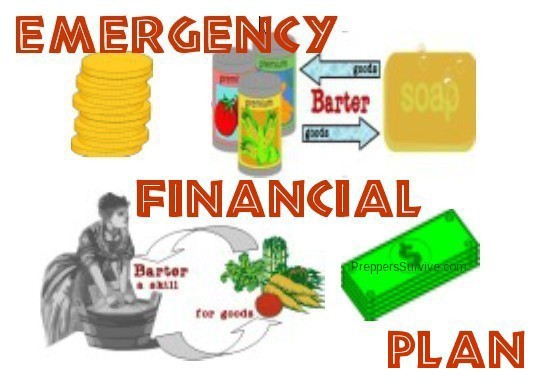
Have you ever wondered what skills you might want or need in an economic crisis? Do you have a financial plan for your family if the United States were ever to have a second great depression? There are several methods to procure goods and provide for the needs of our families. Over time these methods rise and fall in their level of importance. Preppers try to research and develop more than one strategy for doing anything, which includes emergency financial planning. Below are 5 essentials for an emergency financial plan.
Emergency Financial Plan
1. Cash
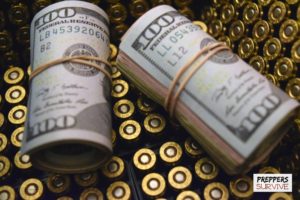
Cash is still king! In the great Chicago fire of 1871, most people were trying to escape the city. The ones with cash were able to rent and purchase wagons and horses to make their way out quickly. Add a mix of small bills & large bills to your bug out bag or fire safe. The small bills are for small purchases. Many believe that people will overpay for items in emergency situations because no one will have time to give back change. The large bills are for bribes or big purchases.
2. One Year Worth of Emergency Supplies
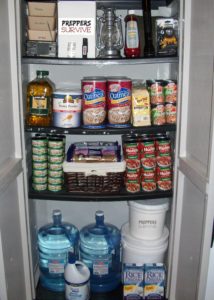
Having food, water, warmth, first aid, and hygiene supplies means that you won’t have to worry about paying or bartering for items. Create a plan and checklist to help you calculate the number of supplies to get you through a year.
3. Gold, Silver, & Copper
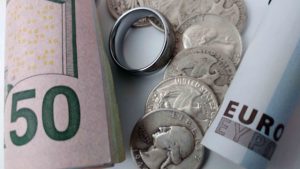
If the US dollar collapses, gold, silver, and copper will likely be the next currency. There are affordable ways to stock up on these commodities (junk silver). In the nonfiction book: The Modern Survival Manual: Surviving the Economic Collapse of Argentina, the author was asked what he wished he would have done to prepare; he said, I wish I would have had a stash of men’s silver wedding bands to barter with. Selling a wedding band looks like you’re selling the last valuable possession you own, so you’re less likely to attract robbers. Add a few silver coins to your emergency stash every year.
4. Stock Pile Goods to Barter with
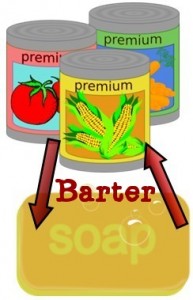
Goods such as food, soap, fire starters, and self-defense weapons will always be in demand. If money loses its value items such as these will be useful for trading for others things you’ll unexpectedly need. Start developing your barter network now. My uncle barters pears from his tree for tomatoes from his neighbor’s garden. Think of which commodities you want to stock-up on for bartering purposes.
5. Develop a Bartering Skill

Consider developing a skill that is of value in a bartering economy. It’s the safest of all of the 5 Essentials for an Emergency Financial Plan. All the others can be stolen or lost in a crisis. Skills you’ll always have, whereas, goods you can run out of. My father bartered his handyman skill regularly. He had a seasonal job at a cannery which meant that he was laid-off a couple of months each year. When he was laid-off, he would take whatever work he could find, even if the payment for his work was in goods rather than cash. The most unusual barter I remember was when he brought home what seemed like 100 rolls of old toilet paper (not as soft as the new stuff). I didn’t appreciate it at the time but it saved my parents from buying toilet paper for a year which can add up when you provide for a family of ten.
Bartering skills might include:
- barber
- beekeeping
- butcher
- candle making
- food preserver
- gardener
- engineer
- handyman
- herbalist
- horticulture
- hunting (selling bird & squirrel meat)
- medical practitioner
- moonshine maker (medicinal or recreational)
- pottering making
- self-defense trainer
- sewing
- smokehouse
- soap making
- sweat lodge or bathhouse
- wood carving – wooden spoons & bowls
- worm farm
Thanks for visiting Preppers Survive. Before you leave subscribe to our newsletter. If you enjoyed Emergency Financial Plan, please share it on your favorite social media.
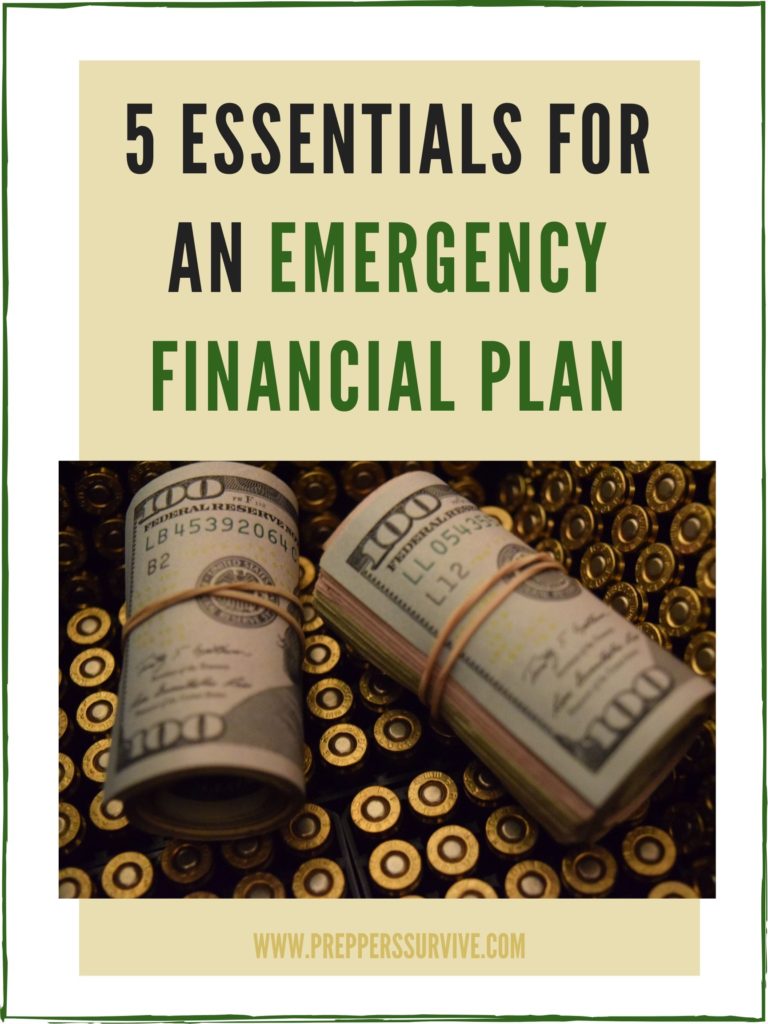
Originally published: April 26, 2014


How much cash do you recommend per person?
$150 per person (A $100 bill and the rest in smaller denominations).
Excellent article full of useful information! My eyes were opened to silver and bartering, thank you!
It makes me realise that i need i need to take up one of these bartering items as a hobbie
I lucked out going to an Estate sale and found a vintage hair clipper, and it works, thought it might come in handy some day, and I’ve had some medical training, my husband is a ‘jack of all trades’ . And we practice making old timey things, like soap, ghee, pemican. hard tack, what a journey. Only if we were younger 🙁 but maybe we can teach the grand kids! Great article!
Lol, if I had a roll of hundred dollar bills I could lay down supplies. That is the goal of most of us. I do not believe I have ever handled a hundred dollar bill, i would not even know if it was counterfeit, even a $50 is questionable to me. This article is essentially about barter which I agree with and I will store barter items just as soon as I manage a years worth of food!
If you buy gold; Do not only buy one ounce gold pieces. Spanish Dubloons were used often during the old west. One coin was accepted as the equivalent the of a U.S. dollar. It could also be divided into eight pieces . So you could make change. ten gram gold bars can be bought where you buy one ounce gold pieces.
one ounce gold pieces cost over $1,000 right now. so few Americans can afford to buy them.
The odds on the U.S. Dollar collapsing are highly unlikely. Go anywhere in the world. Try to buy anything (illegal or legal). Tell the seller you have American dollars. That will get their undivided attention. Some might insist on only being paid with American Dollars.
When was the last time you bought something in America and had to pay with Gold?